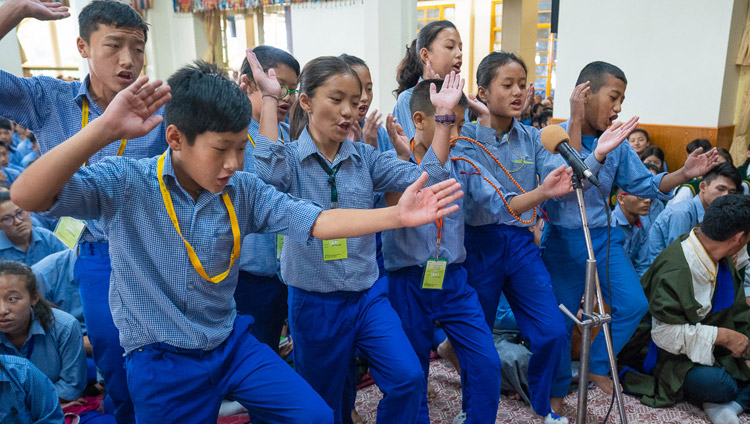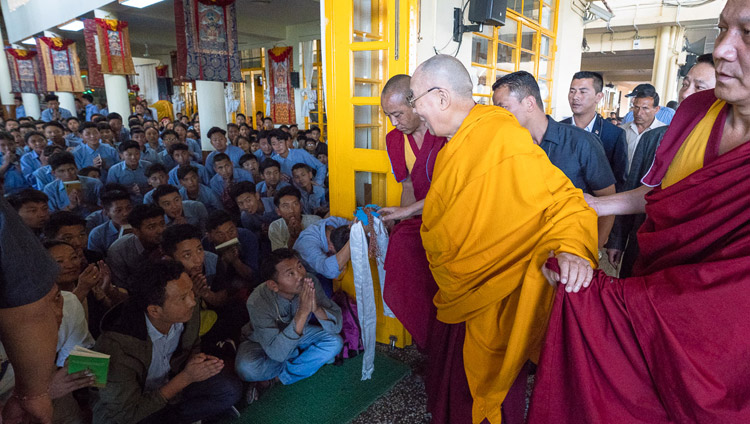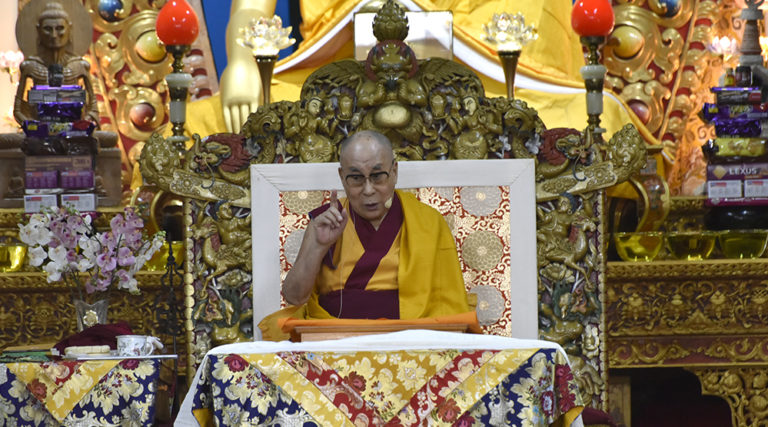
Students from TCV School at Gopalpur demonstrating debate at the start of the second day the teaching
Photo: OHHDL
His Holiness The 14th Dalai Lama conducted a three-day teaching aimed at Tibetan youth in Tsuglakhan, the main temple in Dharamshala, from June 6. He addressed an estimated 9,000 people, the majority college and high school students, together with 150 Thai monks from the Thai Dharma-Sala Charitable Society, around 2,000 foreigners and a number of local Tibetans.
He opened the first day of the teachings by saying, “Students and school children are the main disciples on this occasion, but I am also glad to welcome monks from Thailand.” He continued, “In the past there has been little contact between members of the Pali and Sanskrit traditions”. He said that a “first step will be for monastics from each side to learn the other’s language”.

Photo: OHHDL
Through all three days, he cited the book Guide to the Bodhisatva Way of Life and the wisdom of Nagarjuna, a Mahayana philosopher. He said that “In today’s world people abuse and kill each other, despite scientists observing that basic human nature is compassionate.” He explained that Nagarjuna had taught us that, “through the ‘elimination of karma and mental afflictions there is liberation; Karma and mental afflictions come from conceptual thoughts and these come from mental elaborations. Elaboration ceases through emptiness.” His Holiness observed that, “Modern education is more focussed on achieving material development than on cultivating our basic human inclinations towards compassion.”

Photo: OHHDL
His Holiness’s observation on the nature of negative emotions being a consequence of the modern day and age was brought up again on the second day, when he referred to the work American psychiatrist Aaron Beck who has long experience of working with people deeply troubled by anger. His Holiness connected Beck’s reasoning on anger being a result of misguided mental projections with the idea that religious tradition aims to develop peace of mind. He stated that “The Buddhas uproot ignorance and lead beings to liberation by teaching about reality. The historical Buddha observed that each of us is our own master, implying that we can overcome suffering by eliminating ignorance from our own minds. No one else can do it for us.”
In referring to the natural and social sciences, and tying them in with the teachings and verses of ancient Buddhist philosophers, His Holiness spoke of how the generation of tomorrow must concern itself with compassion towards one another, empathy and altruism, pride in one’s own self and desire to contribute to the benefit of others, and reflection for the sake of attaining one’s own peace.
He concluded with several readings, and said that, “In tackling disturbing emotions we need to use our intelligence and our ability to communicate through language.”




 Print
Print Email
Email